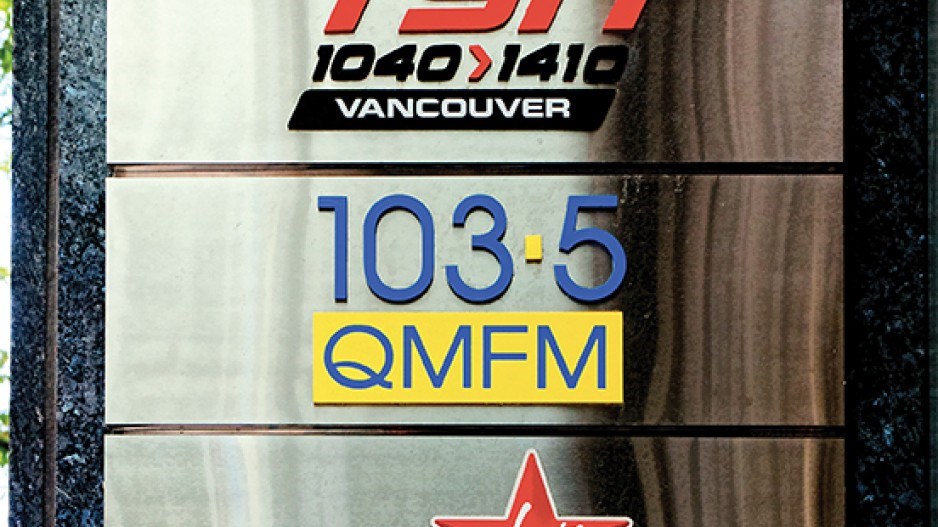After the Winter Olympics in 2010, GM Place in downtown Vancouver got a new name. Rogers Communications Inc. (TSX:RCI.B) worked out a 10-year deal rumoured to be worth $60 million to call the building Rogers Arena.
The telecommunications industry was already in the midst of upheaval as the internet had begun to slice into television, cable and radio revenue. Lindsay Meredith, professor of marketing strategy and economics at Simon Fraser University’s (SFU) Beedie School of Business, said this was the first shot across the bow in the media war between Rogers and its main rival, Bell Media Inc. (TSX:BEC).
While Bell, which posted second-quarter 2017 net earnings of $811 million, is much larger than Rogers (it posted net income for the same period of $531 million), Meredith said the smaller telecommunications giant has been quite bold since its initial 2010 investment for the naming rights to one of Vancouver’s two stadiums.
“Rogers made quite a strategic marketing decision to try to go into and nail the sports segment,” he said. “Because the whole idea was they wanted to get into the system of sports streaming.”
The two telecommunications giants have been battling for sports programming continuously since 2010. In 2013, the hockey landscape underwent a massive shift when Rogers took control of NHL multimedia rights with a 12-year $5.2 billion agreement away from TSN (which is owned by Bell). The deal, which is the largest in the NHL’s history, also allowed CBC to continue to air games through its iconic Hockey Night in Canada broadcast via a sub-licensing agreement with Rogers.
In March of this year TSN 1040, the 11-year radio home of the Vancouver Canucks, lost its broadcast contract to Rogers, when they signed a five-year deal.
Meredith said the latest move by Rogers, which acquired Vancouver AM radio station CISL to be rebranded as Sportsnet 650 and launch this September, is yet another battle within a bigger war. The launch of the new channel means Vancouver will now have three dedicated sports talk radio stations – a group that also includes TSN 1040 and TSN 1410.
Craig MacEwen, the new program director for Sportsnet 650 Vancouver, was the head of Rogers Sportsnet TV up until approximately three years ago. He said Sportsnet 650 has a serious ace up its sleeve: the rights for Vancouver Canucks play-by-play, which it scooped from TSN after the Bell Media company owned the rights for 11 years.
“The Canucks remain the most sought-after content in Vancouver,” he said. “So it was vital for us to secure the exclusive rights to also broadcast every Canucks game on radio.”
University of British Columbia Sauder School of Business Prof. James Brander said Sportsnet 650 has the edge coming into the hockey-mad local sports market.
“If we look just at the Vancouver radio market it is hard to see how there is room for Sportsnet 650 and TSN 1040,” he said. “The Vancouver Canucks are the only high-demand local sport. The BC Lions, the Whitecaps and the Seattle sports teams all have some following, but not enough to drive radio ratings.”
Meredith added all this jockeying on both sides is aimed at attracting the next generation of sports lovers, and Rogers appears to be a step ahead when it comes to the Vancouver market.
“Basically what they want to do is get young people, millennials, to download sports on their cellphones and mobile devices,” he said, noting Sportsnet 650 has made it clear its desired audience is going to be much younger than TSN’s.
Meredith said live sports still offer something unique in today’s modern TV landscape. People still want to watch or listen to most of their sports programming as it happens, while the rest of television has gone the way of either personal video recorders or illegal downloading to watch shows.
According to a study by Canadian Media Sales, most Canadians (37.4%) watch specialty channels as their main TV source, which would include live sports broadcasting on stations such as Sportsnet and TSN. Both companies have multiple channels available through cable packages and, while many consumers are opting to cut the cord, Rogers recently posted viewing increases for both the NHL and the NFL this past season.
Back in 2012 Bell and Rogers agreed to buy Maple Leaf Sports and Entertainment (MLSE) and its subsequent sports television channels for an estimated $1.07 billion. The two companies then went about divvying up various programming. MLSE owns the NHL’s Toronto Maple Leafs, the NBA’s Toronto Raptors and MLS’s Toronto FC.
Peter Tingling, an associate professor in management information systems at SFU’s Beedie School of Business, said the two companies usually operate as a “cosy little duopoly,” working together more than competing in a form of “co-opetition.”
“However,” he added, “I would say there are some cracks forming in that cosy little duopoly. And I think sports are one of the few things that really still matters regarding appointment-style viewing. If you look at the [Floyd Mayweather versus Conor McGregor match] that just happened, there’s not a lot of people watching it a few days later or even downloading it.”
According to Numeris, the CTV Television Network – also owned by Bell Media – still dominates the television market. However, the top-rated sports show in Canada during August is Sportsnet National’s coverage of the Toronto Blue Jays. Tingling said at the end of the day, amidst the sports war between Bell and Rogers, hopefully, the real winners are the fans.
“It would be nice if we could see some more gloves-off competition,” he said. “I’m all for competition; I think it’s fantastic.”




